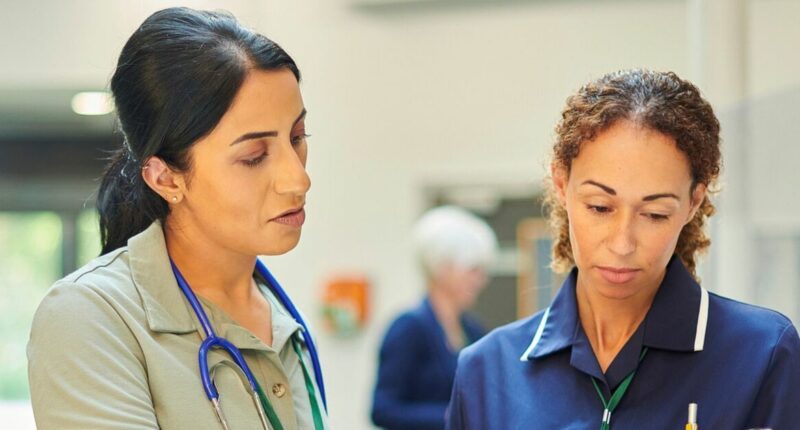Share this @internewscast.com
Last night a DJ didn’t save my life but a woman did say she was going to weigh my urine. She handed me a cardboard bottle and said whenever I needed to urinate I should do it in there instead of the toilet. I thought this was a bit of a strange request for someone to make of a person that they’d only met a few hours before. But, similarly to how any-time-drinking is acceptable at airports, hospitals at 11pm don’t work by the usual rules of life.
Yes, the encounter happened when I was getting ready for bed in an NHS establishment and the woman who made the request is a nurse. I was still puzzled though – why after 45 years of me being in existence would the NHS want to start weighing that? The nurse didn’t give any clues so I asked Dr Google.
Apparently, and I suppose it would have been obvious to someone with more streetsmarts than me, they weigh the wee to see how hydrated I am. In the olden days the question “Are you eating and drinking okay?” sufficed but times change.
Doing the weigh-in can’t be the best bit of nursing though. It’s not exactly Las Vegas with Tyson Fury in the blue corner and Oleksandr Usyk in the other.
Still thinking it was a strange request, I checked with the daytime nurses and apparently it isn’t just something the night shift does to take the p*** out of newbies on a ward.
I haven’t been in this position before because for the two years I’ve been treated for incurable bowel cancer I’ve been a day unit patient.
This entails eating Mini Cheddars and drinking orange squash (other drinks and snacks are available) while several infusions of immunotherapy and chemotherapy drip through a thin plastic tube in a deep vein until the drug is approximately 4cm from my heart.
Everything was fairly routine until last Thursday when a medical team tried to fit another PICC line (also known as a thin plastic tube in a deep vein) and after much pushing and poking of the tube inside three of my veins in my right arm declared it was “time to stop”.
I’ve only ever heard this said before on Casualty when they decide to stop trying to resuscitate a patient so it felt weird to hear those words while lying awake on an operating bed under a sterile covering.
And it feels even weirder to be in a ward with some really ill people, while I’m writing this.
I know my chances of living another three years are slim so I’ll probably earn my place here one day but for now I feel like my bed would be better used by someone who is more ill than me, or at least knows why nurses weigh pee.
I’m here because it was the only option for having chemotherapy while I wait for an appointment to have a chest port. (The main difference between that and a PICC line seems to be it goes under the skin and is much closer to a patient’s heart.)
The last infusion I usually have during each treatment lasts 46 hours and is done through a chemo pump. But this can’t happen without a PICC line or port so I’m living the dream having treatment through a cannula instead, and so have to be in hospital for several days.
From the window near my bed I can see the bus stop I’ll wait at when I’m finally allowed to experience freedom. Today I learned this will probably be Thursday morning, despite being previously assured I’d be out by 10.30pm on Tuesday.
It’s perhaps fitting that during this frustrating time I can also see the building where my hospital’s mental health services are based. If I wasn’t connected to a machine, which runs on mains power, I’d wander down there and ask what more needs to be done for all cancer patients to have mental health support both during and after treatment.
I first discovered that my hospital had mental health support staff when I read about it in the internal magazine. Disappointingly, when I emailed the head of the service to ask how it can be judged as gold standard when no-one has heard of it he said they had to keep a low profile after Covid to avoid long waiting lists.
This is the problem with a lot of mental health services for cancer patients. They are out there but people aren’t getting the support they need because they don’t know they exist.
The Daily Express’s Cancer Care campaign wants to change this reality by ensuring that medical teams refer their patients to the right mental health support whenever it is needed. You can help us by signing the petition above.













